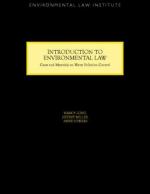|
This section contains 711 words (approx. 3 pages at 300 words per page) |

|
Water pollution may derive from several sources, including chemical pollutants from industry, runoff of chemicals used in agriculture, or debris from geological process, but the greatest source of pollution is organic waste. Although chemical pollutants may become diluted, they can also radically alter the ecosystem to allow the overproduction of certain forms of algae and bacteria that pollute the water with respect to its use by humans.
Once in the water, the growth of microorganisms can be exacerbated by environmental factors such as the water temperature and the chemical composition of the water. For example, runoff of fertilizers from suburban properties can infuse watercourses with nitrogen, potassium, and phosphorus. All these are desirable nutrients for bacterial growth.
With specific respect to microorganisms, water pollution refers to the presence in water of microbes that originated from the intestinal tract of...
|
This section contains 711 words (approx. 3 pages at 300 words per page) |

|


